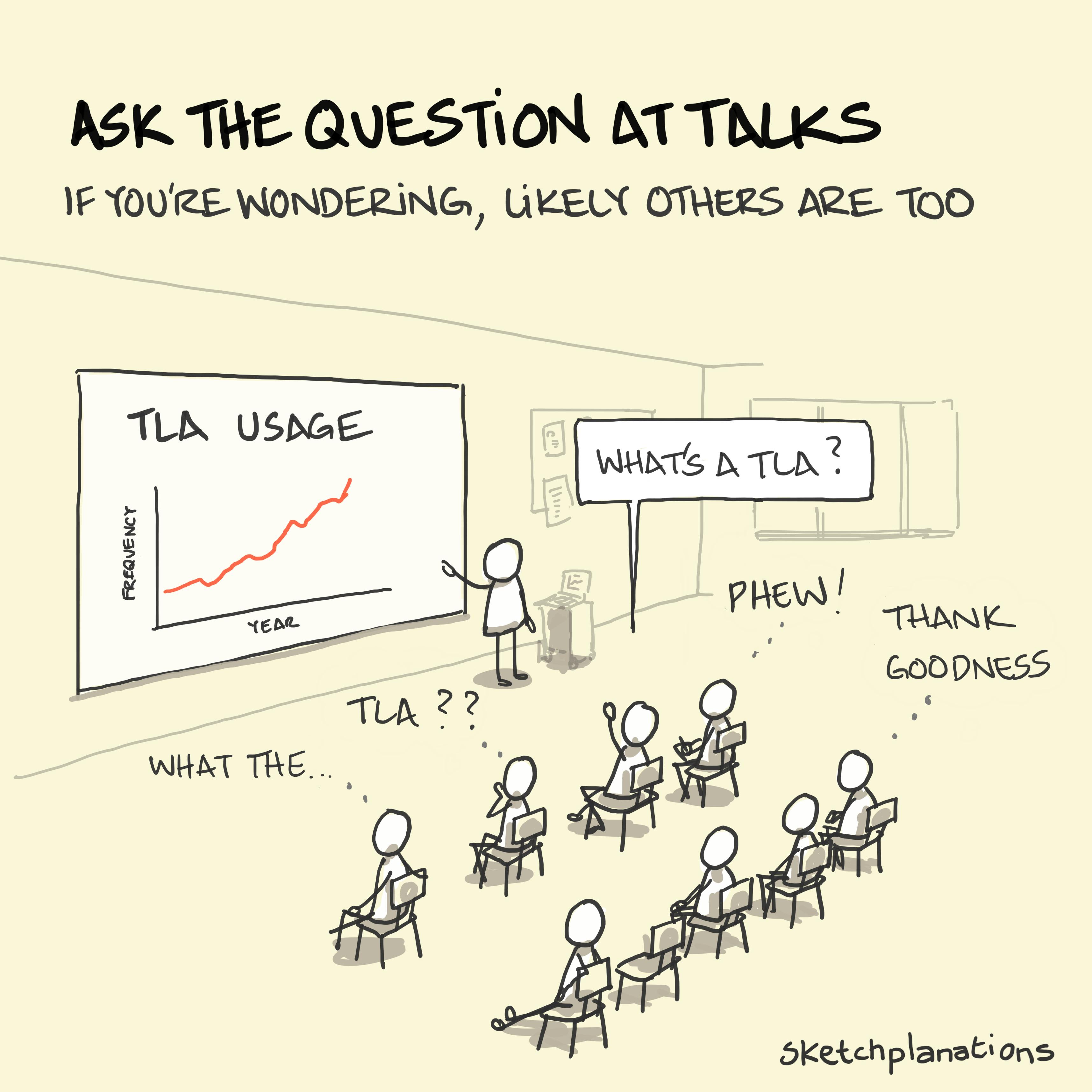Ask the question at talks

👇 Get new sketches each week
At times we've probably all been confused or struggled to understand a talk or a class. When I'm lost or confused my rule of thumb is to ask, even when it's not easy.
The desire to understand what's being said fights with the urge not to interrupt the talk or ask what may be a dumb question — perhaps everyone else already knows? But in my experience, if I'm confused, others likely are too.
It helps to believe this because I know that asking will probably help others and not just myself — asking is a public service. It's very easy as a speaker to assume that others will know what you know and so jargon and TLAs (Three Letter Acronyms - really an initialism) so easily slip in. When someone asks it helps include everyone again.
And you're not just doing a favour for the audience by asking — it's a gift for the speaker too. If I'm giving a talk I want people to get what I'm sharing and not suffer in silence thinking they're stupid and I'm confusing. I want everyone to follow from start to end. It's one more good reason to thank people for the questions you receive.
Let's banish confusion and all get to the end together by asking the question.
This advice stands provided you've been paying attention along the way.
I was surprised to find there are a number of, mostly older, sketches on questions and asking:
- Challenge questions
- Don't fill the silence
- Perform good social research
- Prefer open-ended questions
- Ask a question early at conferences
- Start 3 mindmaps at conferences
- Ask for what you need
- Get more participation

